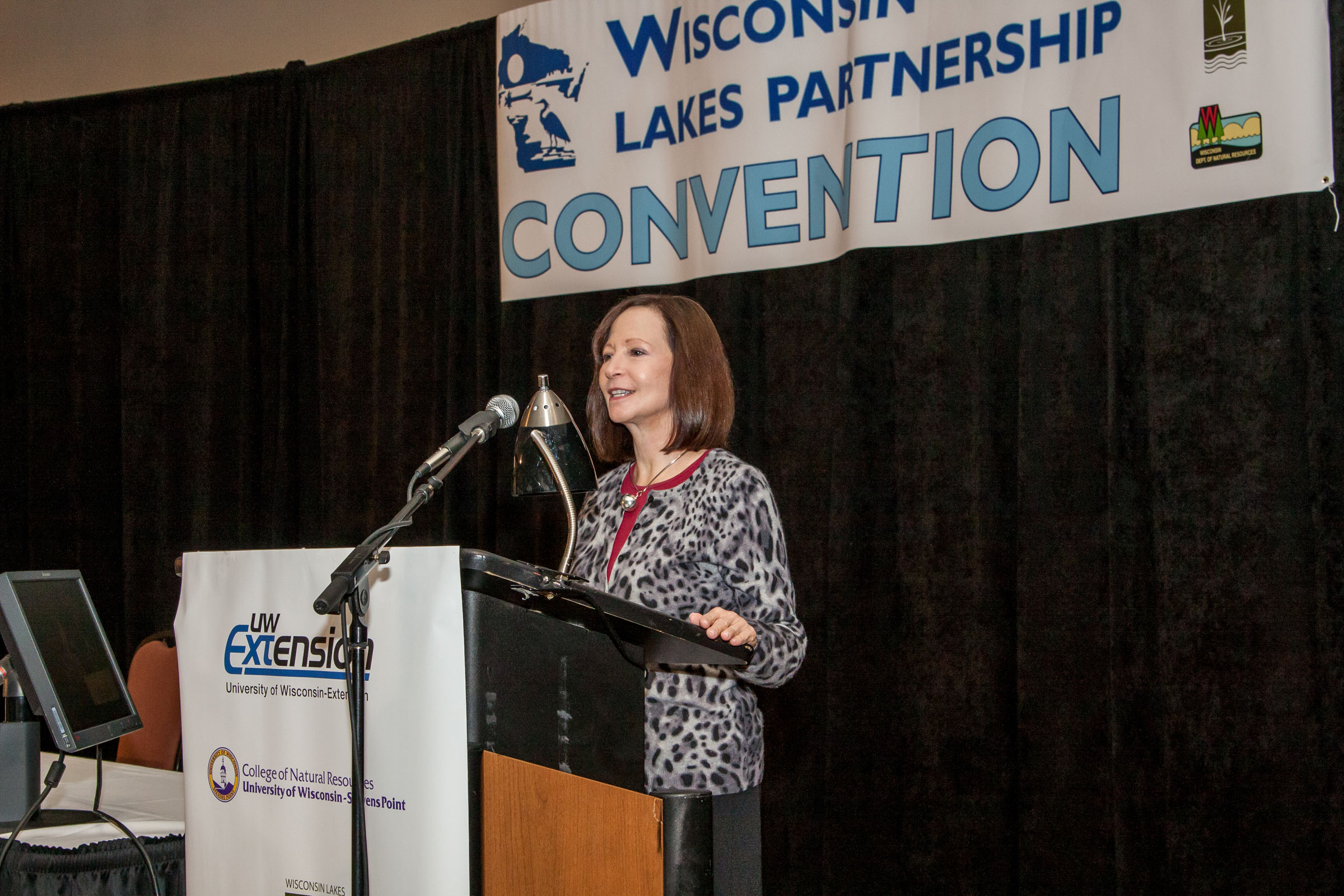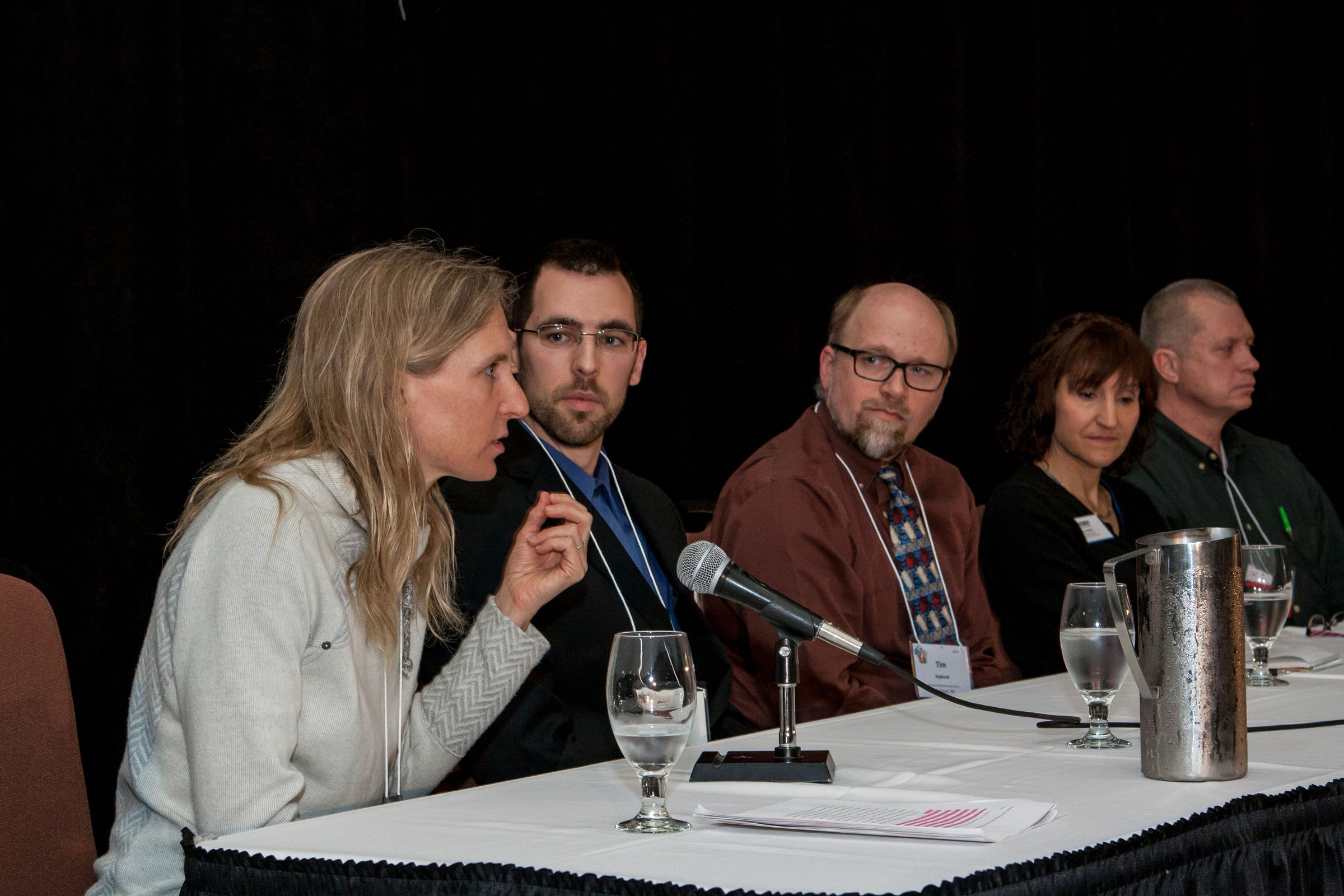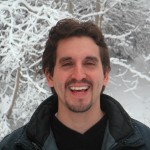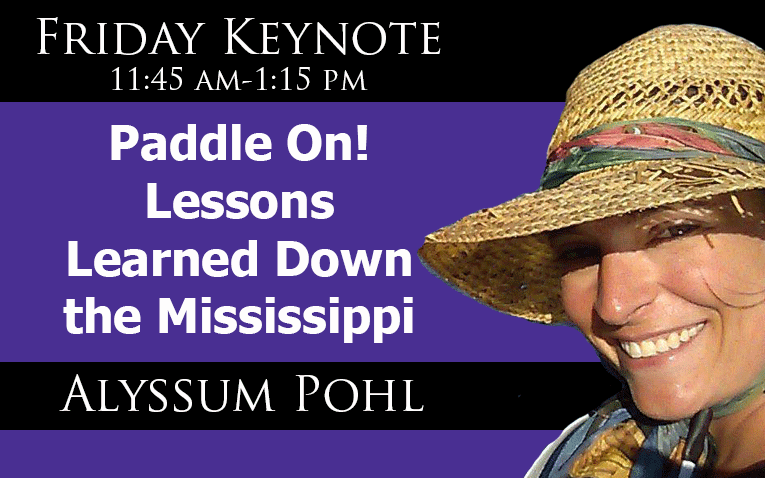2016 Keynote Speakers
Agenda subject to change.
View the digital production that was produced in 2015 by UW-Extension Lakes and UW-Extension Center for Land Use Education to complement the
Water Megatrends publication intended for local government officials and others interested in investigating the connections between water and land use. We provide a timeline of Wisconsin's association with water, provide an understanding of water resources, and discuss a range of state and local policies that affect water use and the resource itself. A
powerpoint presentation is also available.
Thursday, March 31
9:00 am

Cathy Sandeen, Chancellor, UW-Extension and UW Colleges Cathy Sandeen began her appointment as the third chancellor of the University of Wisconsin Colleges and the University of Wisconsin-Extension on December 15, 2014. She has been a leader in higher education and innovation in California and nationally with the American Council on Education. Sandeen brings more than 22 years of leadership experience to our 13 UW College campuses and UWExtension partners who serve Wisconsin’s 6 million residents.
Thursday, March 31
9:00 - 10:45 am
Does Volunteer Monitoring Really Make A Difference?
At 30 and 20 years old, respectively, the Citizen Lake Monitoring Network and the Water Action Volunteer Stream Monitoring Program are two of the longest running volunteer water monitoring programs in the United States. Nearly 400 programs like these support more than 1700 groups to monitor the health of streams, lakes, wetlands, groundwater, and marine waters around the country. They support volunteers to monitor more than 20,000 sites annually. With so much data being collected, the question arises, are these data being used to help inform management decisions, to impact policies, or to protect or improve water quality? In this presentation results and anecdotes from a recent national survey of these programs will be shared that clearly demonstrate that the answer to this question is, unmistakably, yes! From discovering faulty septic systems, and illegal municipal stormwater connections, to requiring compliance to regulations on the part of dam owners, stormwater districts, and wastewater treatment plants, these programs have effectively contributed to helping protect and improve local waters. Come find out what these programs have in common and hear stories of their successes.
Kris Stepenuck is an Extension Assistant Professor with the Rubenstein School of Environment and Natural Resources at the University of Vermont, and Extension Program Leader for Lake Champlain Sea Grant. From 2001-2015, she coordinated Wisconsin’s Water Action Volunteers Stream Monitoring Program. She currently serves as secretary of the Citizen Science Association, and additionally maintains a website, listerv, and Twitter account to help volunteer water monitoring programs across the U.S. In her free time, she enjoys hiking, whitewater kayaking and skiing with her husband.
Presentation: Does Volunteer Monitoring Really Make a Difference? (PDF)

Citizen Monitoring Panel
Following Kris’ presentation will be a panel discussion made up of professionals directly involved with water
monitoring in Wisconsin.
Kris Stepenuck
Paul Skawinski, Statewide CLMN Coordinator, UW-Extension
Tim Asplund, Monitoring Section Chief, Wisconsin DNR
Peggy Compton, WAV Stream Monitoring Program Coordinator, UW-Extension
Bob Wakeman, Statewide AIS Coordinator, Wisconsin DNR
Moderator: Eric Olson, Director, UW-Extension Lakes
Friday, April 1
8:50 - 9:50 am
 Citizen Science Benefits Conservation
Citizen Science Benefits Conservation
Citizen science, the involvement of volunteers in data collection, has increased the scale at which ecological research can be conducted. The benefits for conservation lie in understanding how threats ― such as climate change and habitat loss ― are impacting species and entire ecosystems. Dr. Zuckerberg will review the role of citizen science in measuring, understanding, and predicting the role of modern climate change on bird communities and conservation.
Dr. Ben Zuckerberg, Assistant Professor, Department of Forest and Wildlife Ecology at the University of Wisconsin-Madison and Co-chair, Wisconsin Initiative for Climate Change Impacts (WICCI) Wildlife Research Working Group
Presentation: Citizen Science as an Essential Tool for Studying the Impacts of Climate Change on Birds (PDF)
Friday, April 1
11:45 am - 1:15 pm
 Paddle On! Lessons Learned Down the Mississippi
Paddle On! Lessons Learned Down the Mississippi
One of our keynote speakers this spring will be a woman who has personally taken citizen science to a whole new level. Alyssum Pohl set out early last summer to paddle the entire length of the Mississippi by kayak, monitoring water conditions along the way. In addition to water quality data, Alyssum spent time gathering river water samples every 100 miles and sent them to Adventurers and Scientists for Conservation for their freshwater microplastic research project. This effort is “crowdsourcing” water samples from around the world to learn about the amount of tiny plastic particles that are increasingly showing up in the food web. Alyssum will share her results as well as interesting stories from her four months on the river.
Follow Alyssum's trek down the Mississippi River here: http://alyssumpohl.weebly.com/paddle-on
Follow Alyssum on Facebook: https://www.facebook.com/alyssum.pohl?fref=ts
Find out more about crowdsourcing and citizen science here: https://crowdsourcing-toolkit.sites.usa.gov/

